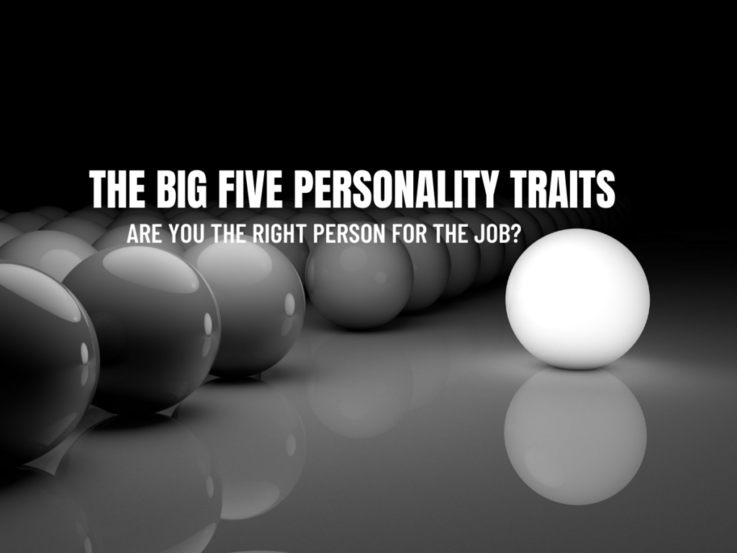THE BIG FIVE
Below is an extract from the Big Five Personality Test questionnaire. Your answers below will explain your answers to the questions above.
From a mishmash of online assessments and quizzes one can take to check his/her personality and character traits, the Big Five Personality Test is where you can start because it is where many of the other personality assessments were based on.
The Big Five Personality Traits, also known as the Big Five Model, Five-Factor Model, and OCEAN Model (an acronym for the five traits – Openness, Conscientiousness, Extraversion, Agreeableness, Neuroticism) is considered the Gold Standard of personality psychology tests.
The progression of research and development on this theory started from the work of Sir Francis Galton in 1884, which was, later on, picked up by psychometrician Dr. LL Thurstone in 1934. Their work became the foundation of factor analytic research into personality traits. Psychologists Gordon Allport and Henry Odbert expanded on their work, and the theory was established by Dr. Fiske in 1949, and again expanded by other researchers from 1967 to 1987.
Clearly, extensive work has been done in the design of this theory which made it a dependable metric to measure personality.
WHAT ARE THE FIVE PERSONALITY TRAITS?
- OPENNESS
This trait is related to how open to new ideas a person is. A person scoring high on openness is adventurous and eager to learn. And because they are curious, they are receptive and open to new ways of doing things – out-of-the-box solutions, novel, and innovative experiences.
People scoring low on openness tend to stick to the traditional, tried and tested, and practical ways.
- CONSCIENTIOUSNESS
This trait reflects a disciplined person and exhibits self-control. A person scoring high on conscientiousness is reliable, responsible, and would go to great lengths to meet his goals. You can be assured that he would stay up late to meet a deadline and can be expected to forfeit instant gratification for a higher purpose.*
On the other hand, a person with a low score on conscientiousness shuns structure, would choose a good time over a demanding task, and have a tendency to procrastinate.
- EXTRAVERSION
Extroverts thrive on attention. They are recognisable from a mile away because they actively engage for the purpose of seeking attention. They are sociable, assertive and derive energy from being around people. Evidently, they have a large following and connections in all their social media accounts.
Introverts are reserved and prefer to be in the background in solitude because social situations are draining for them.
- AGREEABLENESS
People who score high on agreeableness will also score high on empathy. They prefer collaboration more than competition and would put others’ needs over their own. These people are trusting, compassionate and cooperative.
Low agreeableness scorers put their needs ahead of others, are competitive, suspicious of others, and hostile which often result in conflicts in their relationships.
- NEUROTICISM
People who score high on neuroticism often experience mood swings, anxiety, sadness, and a whole wide range of negative emotions. They have a tendency to overcomplicate situations and therefore are unable to relax.
While highly neurotic people are emotionally unstable, a person who scores low on neuroticism exhibits an emotionally stable character, resilience in stressful situations, and will seldom exhibit sadness.
TAKE AWAY
Personality tests are conducted to know a little deeper about a person. However, it should not be treated conclusively but rather handled cautiously. Better yet, evaluated supplementary to other psychological assessments. One’s environment, experiences, education, relationships all contribute to a person’s growth and change over time. While psychological personality tests reveal things about a person, it is not a perfect metric.
While the Big Five Personality test remains a dependable standard and provides valuable insight into a person’s strength and character, I still believe that it is better to reserve all judgment until you come face to face with the person and have a conversation. Tests, unless done repeatedly and analysed scientifically, are also influenced by the person’s situation, honesty and emotional state at the time of assessment. Do not cancel any person until you have conducted a deep conversation with him/her.
Did you learn something from this article?
If you have any questions or interest in this topic and would like to explore conducting a deep level assessment of your team, please connect with me through my number +49 4292-517 288, email: mail@roel-schaart.com or any of my social media accounts.
« Back